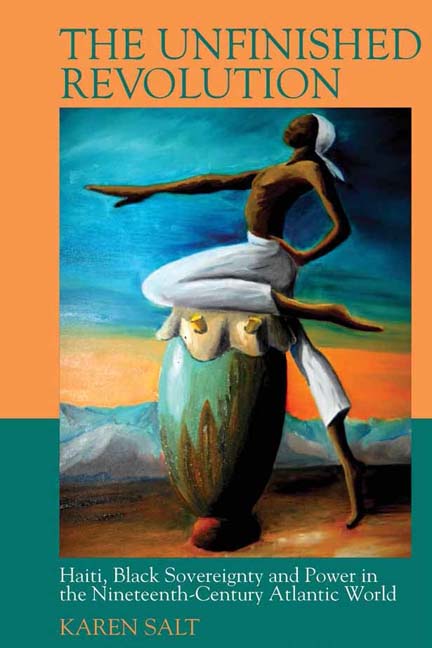 The Unfinished Revolution
The Unfinished Revolution Introduction
In 1804, British abolitionist and lawyer James Stephen discussed what he presented as “The Opportunity.” Published in London, this document presented an assessment of England's opportunities—given the declaration of independence of Haiti—to marshal its commercial interests and, importantly, to recognise Haiti's sovereignty and protect the new nation from French interference. Stephen, who spent time gaining first-hand experience in the Caribbean of the atrocities of Atlantic racial slavery, positions this critical moment in 1804 as a choice—actually more like a political path— that could help Britain and Haiti form a lasting and economically beneficial relationship. Importantly, this path would slight the French and position the influencers in public who meddled in these moves as they steered the conversation about Haiti and sovereignty.
A pivotal figure in British anti-slavery, Stephen may not be as well-known as his contemporaries, William Wilberforce or Thomas Clarkson, but he was well connected—and influential—even eventually marrying Wilberforce’s sister. Born in Dorset, but having worked in St. Kitts and travelled throughout the Caribbean for a time, Stephen returned to England, settling in London. A member of a group of Anglicans focused on philanthropy and service, known as the Clapham Sect or “Saints,” Stephen and “this well-connected, pious, and activist group was the creative center of an extraordinary range of missionary, social, and philanthropic initiatives that would leave an enduring mark on British society”—including the creation of a colony in Sierra Leone.
Stephen, with his African Institution membership, advocacy, writing and links to anti-slavery societies in England, presents an important example of the types of anti-slavery supporters of Haiti. Although this chapter will make clear Stephen's advocacy, it is less interested in charting how he and other English abolitionists thought through and formed their moral obligations against slavery and for freedom. Many scholars have covered the work, thought, agitation and politicking of the Clapham Sect, the African Institution, William Wilberforce, Thomas Clarkson, radical anti-slavery in Britain and French and British intrigues at the start of the nineteenth century.
Instead of retreading this known ground, this chapter draws together two disparate voices—James Stephen's and Prince Saunders’s—in order to highlight the related links in their writings on sovereignty, recognition, trade and bodies—and how those terms and issues would be manipulated by Haitian officials, notably Henri Christophe, as a way to legitimate his monarchical state.
To save this book to your Kindle, first ensure [email protected] is added to your Approved Personal Document E-mail List under your Personal Document Settings on the Manage Your Content and Devices page of your Amazon account. Then enter the ‘name’ part of your Kindle email address below. Find out more about saving to your Kindle.
Note you can select to save to either the @free.kindle.com or @kindle.com variations. ‘@free.kindle.com’ emails are free but can only be saved to your device when it is connected to wi-fi. ‘@kindle.com’ emails can be delivered even when you are not connected to wi-fi, but note that service fees apply.
Find out more about the Kindle Personal Document Service.
To save content items to your account, please confirm that you agree to abide by our usage policies. If this is the first time you use this feature, you will be asked to authorise Cambridge Core to connect with your account. Find out more about saving content to Dropbox.
To save content items to your account, please confirm that you agree to abide by our usage policies. If this is the first time you use this feature, you will be asked to authorise Cambridge Core to connect with your account. Find out more about saving content to Google Drive.